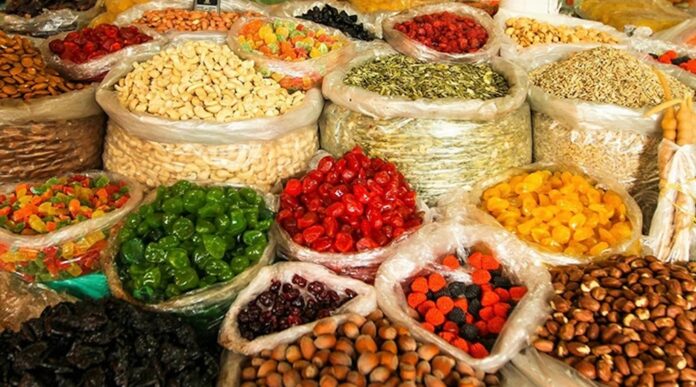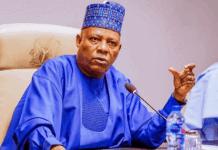. says price control system will deepen food scarcity
Unpleasantries have trailed the continuous rise in the prices of food items in Nigeria. Citizens lament the hunger and scarcity of food in the nation despite the promises of President Bola Ahmed Tinubu’s administration on food security.
In expression of displeasure, protests rocked several states and some youths reportedly looted trucks carrying food items.
While the prices soar, a call was made for the implementation of a price control system in the nation. Vice President Kashim Shettima, at a strategic meeting, announced plans to establish a National Commodity Board to look into the spate of food inflation.
Shettima stated that the board would be saddled with the responsibility of assessing and regulating food prices, as well as maintaining a strategic food reserve for stabilising prices of crucial grains and other food items in the nation.
Speaking on food security during a meeting with the 36 state governors and FCT minister, President Tinubu opposed price control and food importation. Rather, he appealed to the state governments to partner with the federal government to increase food production locally and urged local food producers to produce more food for circulation.
In an exclusive interview with Daily Champion, Associate Professor of Economic History, Obafemi Awolowo University (OAU) Ile-Ife, Dr. Adetunji Ogunyemi stressed that food driven inflation is not as a result of foreign currency or devaluation of naira but due to insecurity.
Dr. Ogunyemi decried the low production level of the nation, saying that the government cannot control prices with its current level in order not to move the country to a greater level of food scarcity.
“We have consistently not been productive in Nigeria, therefore we cannot control prices. Price control does not work in an environment where productivity is very low.
“In any environment where the state does not produce significantly enough to be a major competitor in the market space, price control will stale. In Nigeria, we are not productive enough. Price control sounds socialist. There is nothing wrong in doing social welfare for the people but it should be in a state that is producing enough,” he said.
The financial expert emphasised that price control will lead to distortions in the system as it does not work in an environment with low production.
“It is like a person trying to give you money which he does not have. He is trying to make your life easier. He does not have an easy life but wants to give it to you. In economics, we call it distortion. It will introduce distortion to the system.
“If a private sector goes out to import, using his hard earned currency and then you say that it should be sold at a price; you who has not brought it in is determining that.
“The first casualty it will cause is that people will stop investing in goods that ordinary people can consume. If investors don’t go into investing for the production of such things because they fear that you will control them will ultimately lead to scarcity. This scarcity will drive greater problems for the society. It will have greater social consequences,” he explained.
The analyst, however, frowned at profiteering which involves making unreasonable high profit on sales, noting that it is an offense against the state.
Commenting on the recent closure of a supermarket in Abuja by the Federal Competition and Consumer Protection Commission (FCCPC) over customer extortion and lack of transparency in price, Dr Ogunyemi stated that the government should discourage the use of foreign currencies as price tag in stores or firms, as it is against the law.
His words, “You bought an item at N10 and want to sell it at N1000. That is no longer a gain but you are introducing evil into the system. It is the duty of the state to prevent profiteering. You cannot be charging unreasonable prices because you will have a captive market. Such stores should be sealed up. What the government did was perfectly in order.
“Nobody has the right in this country to put a price tag quoted in foreign currency in Nigeria. If anybody does that, it is illegal and criminal. You can’t say the price of what you’re selling or your service is in dollars. If any university is doing that, it is criminal. The government can come in to stop people from quoting their prices in any foreign currency.”
According to the learned economic historian, the increase in prices of goods is caused by the cost of production while that of food items is as a result of insecurity.
He explained, “food driven inflation is not as a result of foreign currency or devaluation of naira. It is a function of insecurity. If insecurity in food producing belt of Nigeria – North West, North east and North central persists, if farmers cannot go to their farms successfully and safely, there is a tendency that they will abandon the farm and there will be crisis. This has to be solved.
“Next issue is the cost of transportation and energy. This is very high due to the removal of the fuel subsidy.”
Suggesting helpful measures to save the situation, Dr Ogunyemi charged the government to be tougher on the criminals attacking farmlands especially at the North east which is the grain producing part of the country and the tuber producing part– North central.
“The government has an abounding duty to ensure that there is security in our farmlands for food security,” he concluded.

























